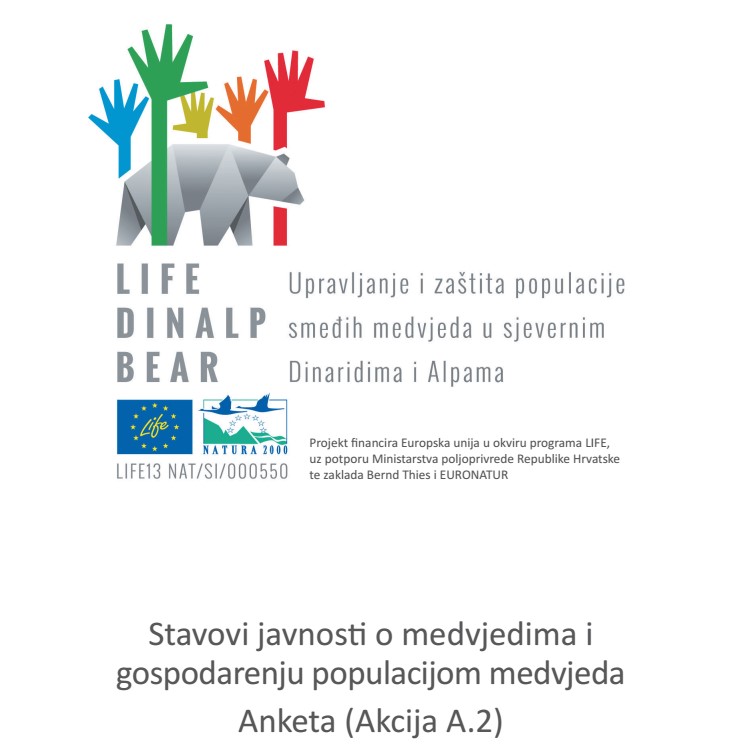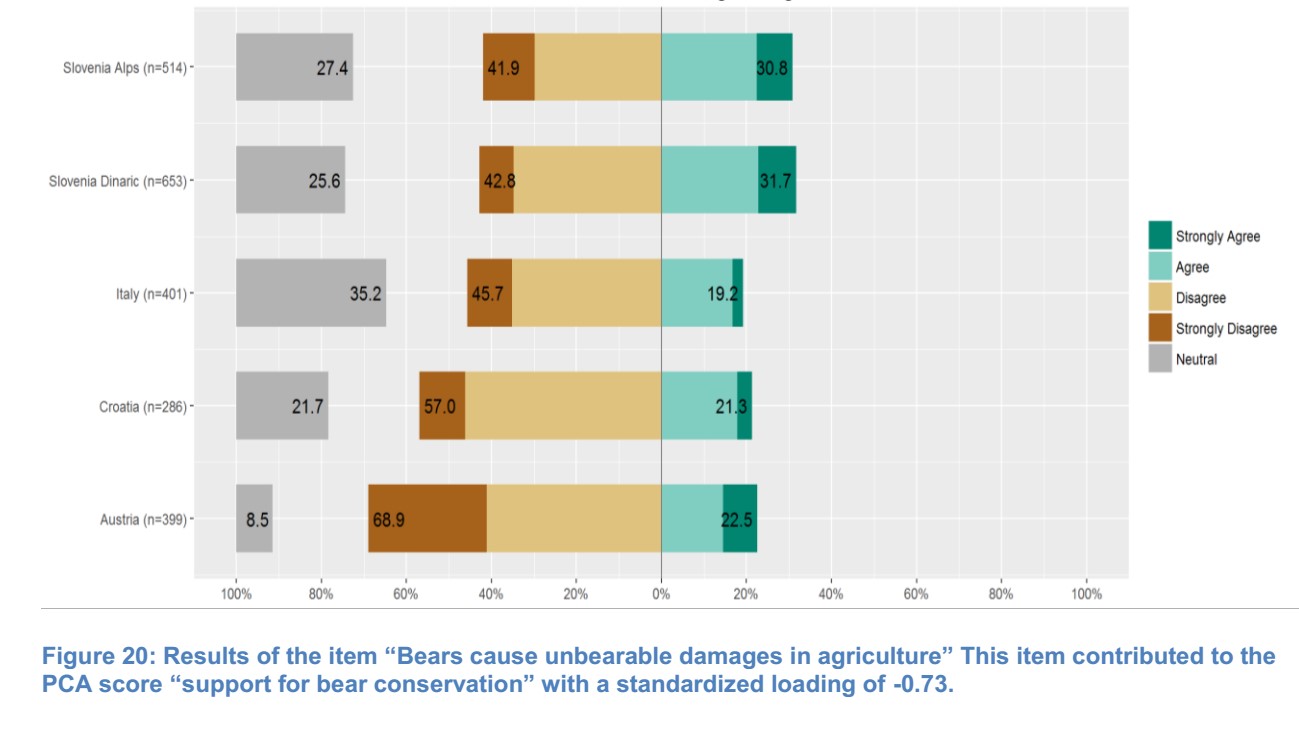We used structured survey to analyse public perceptions about human-bear conflicts and about potential solutions to human-bear conflicts on a randomly selected sample of inhabitants of bear areas in Italy, Austria, Slovenia and Croatia. Following a data quality screening, 2306 questionnaires were included in the analysis.
Our results indicate that Italians can tolerate the most conflict situations although respondents from all four countries showed tolerance of the majority of the presented potential human-bear conflict situations. Younger generations, males, dog owners and knowledgeable about bear biology were more tolerant of conflicts with bears.
Respondents in all four countries acknowledged the effectiveness of damage mitigation measures and education in dealing with human-bear conflicts, while the effectiveness of “culling” and “supplemental feeding” was perceived differently in different countries. Livestock owners were less inclined to supporting mitigation measures as an effective solution, however they were still overall supportive. Familiarity with bear biology proved to be important in predicting support for mitigation measures.
Check the final report of the action for more information on how people feel about bears.











